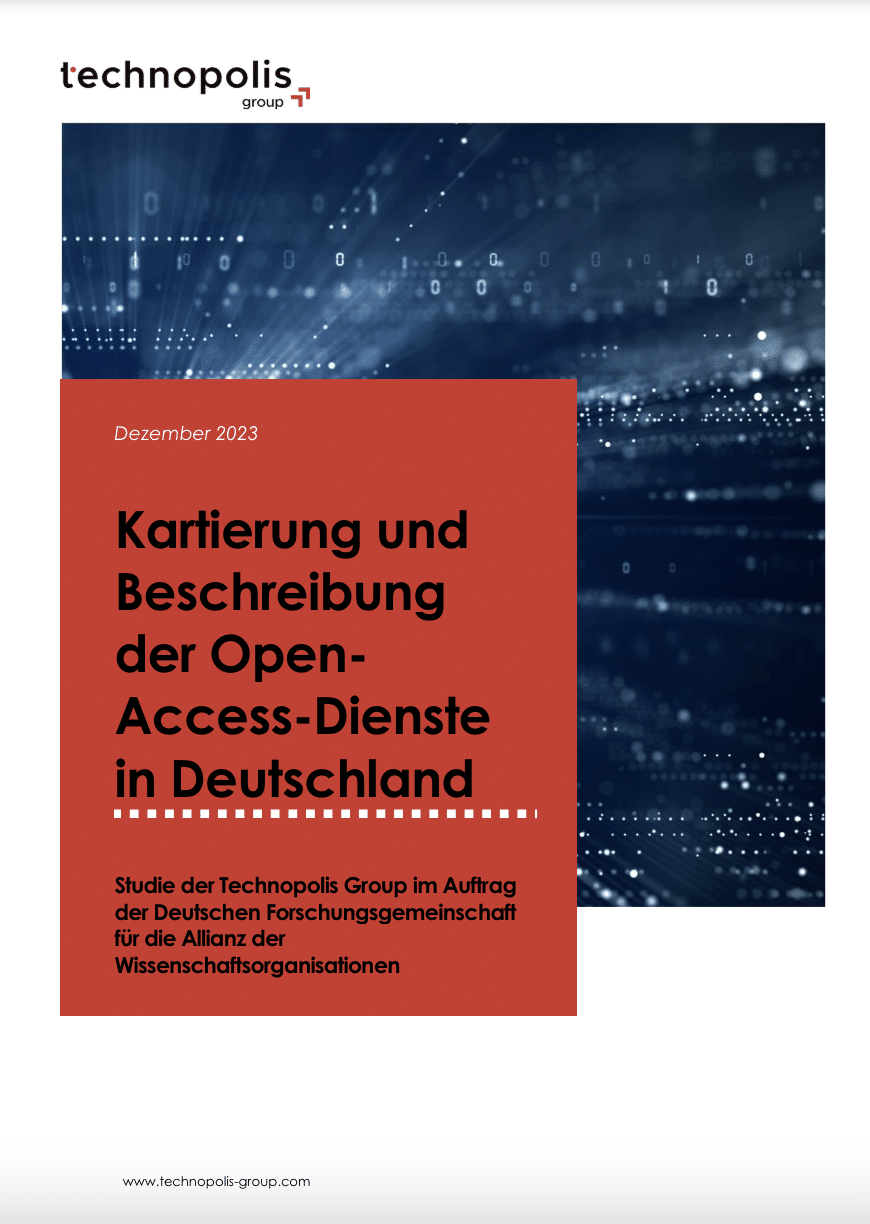Kartierung und Beschreibung der Open-Access-Dienste in Deutschland
Publication date: 22 Mai 2024 | Report language: DE
This study on the mapping and description of open access services in Germany provides an overview of the status quo of publicly funded, science-led Open Access services and infrastructures in Germany. It describes and analyses offers, utilisation, costs and financing models, challenges and the international connectivity of the services and infrastructures as well as existing systemic needs for further services. In a next step, the results can lead to possible prospects for the publicly funded Open Access publishing system in Germany.
The study team used an innovative iterative mapping approach: based on a combination of desk research and surveying Open Access experts as well as researchers, Open Access infrastructures were identified based on a novel criteria system. In a third survey of these Open Access infrastructures, comprehensive data on financing models, utilisation etc. was collected. This data set was complemented qualitatively by ten case studies. The results of the synthesis and analysis was discussed with Open Access experts and stakeholders.
Based on this report, the German Alliance of Science Organisations has published a statement, and demands public support for sustainable financing models of non-profit infrastructures and the consideration of the sector against the background of digital sovereignty.




